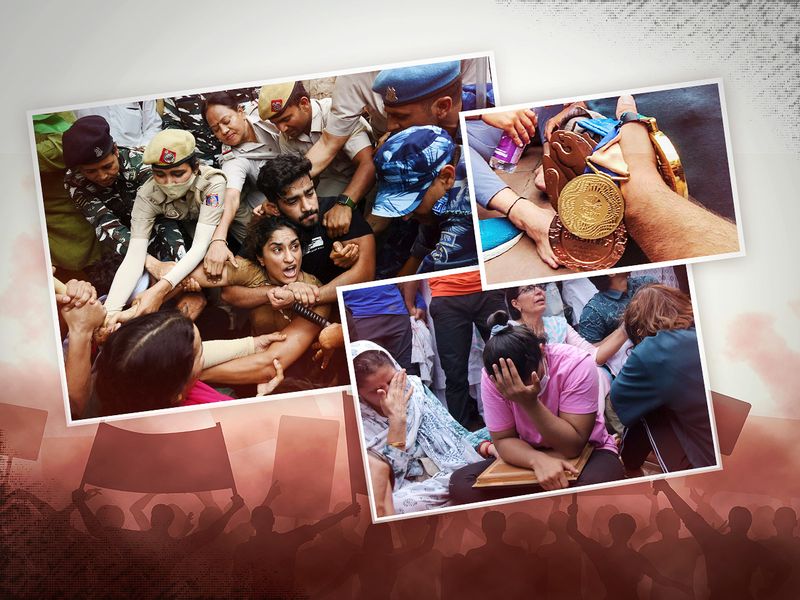Last week I nearly choked on my breakfast as I picked up the morning newspaper in New Delhi. ‘The Indian Express’ was reporting that the women wrestlers who have accused wrestling federation chief and Bharatiya Janata Party (BJP) MP Brij Bhushan Singh of sexual harassment, have been asked to provide audio and video ‘proof’ by the police.
It was another stomach churning moment in a story that has made national headlines for weeks. Are women now supposed to film themselves while being assaulted so that cops can do their job later? The whole thing is so absurd. This is exactly why women are reluctant to speak up against their harassers in India.
Putting everything on the line, even their Olympic medals, the wrestlers have struggled to make their voices heard in the police and in the government.
Despite eyewitnesses to their harassment and multiple accounts of inappropriate touching that have been documented in the police reports, it has taken the Supreme Court of India’s intervention and worries in the BJP about a political fallout in the Jat community, that has stirred any response.
Courage to speak up
A charge sheet was finally filed against Brij Bhushan Singh last week but the more stringent provisions that would have lead to his immediate arrest were dropped. The wrestlers have gone through the humiliation of being rounded up by police while peacefully protesting. The country’s minister for women’s welfare Smriti Irani doesn’t have a word to say on this, but a lot to say on Rahul Gandhi.
The wrestlers’ protests have drawn little empathy among well heeled Indians. The same people who came out to protest against Nirbhaya’s gang rape in Delhi over a decade ago, seem unmoved by this today. The country’s top sportspersons with some exceptions have not found the courage to speak up in support.
Many survivors take years if not decades to speak up, given how difficult it is. They are often judged for keeping quiet or even blamed for somehow being responsible for what happened to them.

What this tells you is how difficult the ‘me too’ movement has been in India especially when those accused of harassment have been powerful men. Journalist Priya Ramani bore the brunt of it when she went public with what happened to her at the hands for her former boss and editor and later BJP minister MJ Akbar.
A number of other women spoke out against Akbar subsequently but he went on the offensive and sued Priya Ramani for criminal defamation. I went to several hearings in that case and saw how Akbar’s formidable legal team tried to bully and intimidate Priya on the stand. She stood firm, unwavering and eventually had her way in court. But the experience was brutal.
The battle for justice
Recently Priya penned a piece, an open letter to the wrestlers, where she wrote, “People said we had unleashed a social media “mob” against respectable men; that our stories were not legitimate because we had not spoken up when the incidents occurred. When I won the defamation case in 2021, albeit as an accused, the judge set right the record on the last point: ‘The woman has a right to put her grievance at any platform of her choice and even after decades.’”
As Priya rightly says, speaking up is a privilege in India that few women have. The wrestlers challenged everything about the perceptions of their sport, fought their way to the top in a conservative Haryana society where being born a girl is still considered a handicap in many families.
Their battle for justice deserved far more support from their peers in the sports world and from all of us as citizens.









